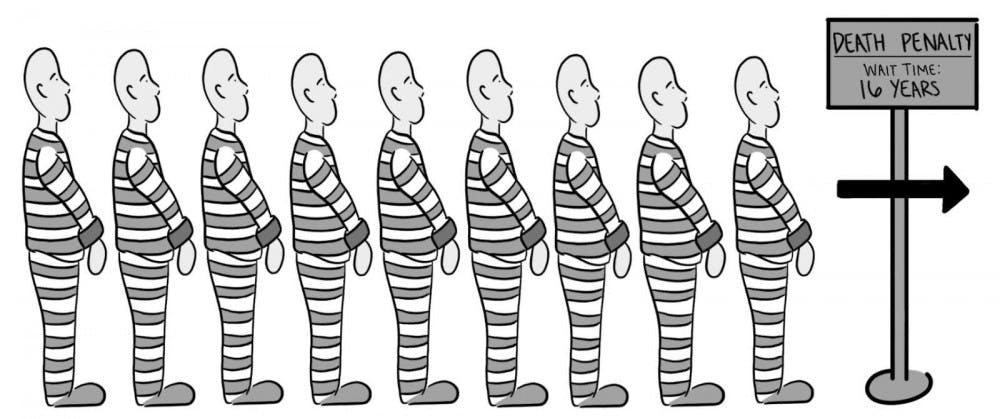An Indiana death row inmate filed a lawsuit against the state Jan. 8 arguing capital punishment violates Indiana’s constitution.
Roy Ward, now 46, was found guilty in 2002 of raping and murdering a 15-year-old girl in her house. He was sentenced to death, with prosecutors citing the severe mutilation of the girl’s body.
The Indiana Supreme Court overturned his conviction in 2004 and called for a retrial after Ward appealed, claiming jurors were exposed to too much pretrial publicity.
He pleaded guilty in the 2007 retrial and was again sentenced to death.
Ward also sued the state in 2014 after it changed its lethal injection protocol, but the Indiana Supreme Court eventually ruled against him and allowed lethal injections to continue.
David Frank, Ward’s attorney in the 2014 lawsuit, filed the new suit on his behalf. Frank said he wants the Indiana Supreme Court to recognize capital punishment is not just.
“It’s not a deterrent," Frank said. "It doesn’t punish the worst of the worst. It’s applied arbitrarily.”
The lawsuit was filed in the LaPorte Superior Court. Ward is being held in the Indiana State Prison in LaPorte County, where all the state’s executions are performed.
The suit specifically names Gov. Eric Holcomb and Robert Carter, the commissioner of the Indiana Department of Correction, as defendants because it’s not possible to sue the state itself.
Carter’s office declined to comment for this story. Holcomb’s office has not responded to multiple requests for comment.
Indiana is one of 30 states that allow the death penalty, according to the Death Penalty Information Center.
The average time between death sentencing and execution in Indiana is about 16 years, according to the Indiana Public Defender Council. It has been almost 17 years since Ward’s initial conviction, and he does not have a set execution date.
Frank said while this may be normal for Indiana death row inmates, he sees it as an indication that the state’s system of capital punishment is purposeless and arbitrary.
“With all due respect, it’s based on a desire for vengeance,” Frank said. “The problem is that basing the criminal code on a desire for vengeance is unconstitutional.”
There are nine men on death row in Indiana, according to a report from the Indiana Public Defender’s Council. They have been awaiting execution for anywhere from five to 25 years.
If the Indiana Supreme Court ruled the death penalty unconstitutional, existing death sentences would likely be commuted to life in prison without the possibility of parole, Frank said.
Indiana’s last execution was of 49-year-old Matthew Eric Wrinkles in 2009 by lethal injection. He was on death row for 14 years before his death.
A person sentenced to death in Indiana is eligible for up to three levels of appeal. The first level of review is required for all death sentences, but the other appeals are optional.
Ward has attempted all three levels of appeal. His last appeal to the Seventh Circuit U.S. Court of Appeals was denied in August 2016.






